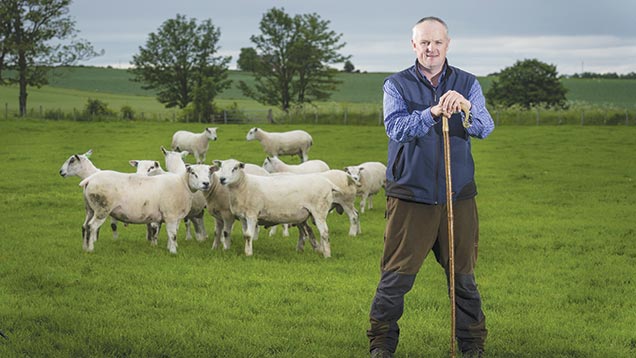Farmer Focus: On-farm ram and lamb sales get off to good start
 John Scott©Jim Varney
John Scott©Jim Varney Our focus at Fearn over the past month has undoubtedly been sheep. Although we’ve had the irritation of harvest to contend with, from a lamb and ram sale point of view it has been conveniently late.
For the first time we have had two on-farm sales. Lambs were first up, on 11 August, and 17 days later we hosted our ram sale in conjunction with our local auction market, Dingwall and Highland Marts.
See also: Read more from the livestock farmer focus writers
Hosting a lamb sale on farm for the first time was a real eye-opener. We had several reasons for trying it, but I must admit I was rather nervous the night before.
When we doubled the size of the ewe flock three years, ago our intention was to finish everything ourselves, squeezing every last penny out of the lambs by using home-grown barley and forage.
Being the stubborn farmer I am, it took me two years to realise that perhaps this wasn’t the brightest idea I have ever had, and we could make life a lot easier by cashing lambs from our outlying farms at between 12 and 15 weeks of age.
Other factors also came into play. Martin, our shepherd, is planning to go to New Zealand for four months over winter; selling lambs means we could free up grass for mating ewes and I’m nervous that our SFP may be late so cashflow will no doubt be under a spot of pressure… again.
On reflection, we would have liked slightly more cash from the sale, but we sold 2,154 lambs in 25 minutes at an average of £46.75, with minimal haulage.
I can think of at least six 50p tweaks that can be introduced for next year and we will work hard to produce a more uniform product.
Our fourth annual ram sale exceeded expectations: all 112 rams found new homes all over the country at an average price of £712, with no feeding or dressing prior to sale.
Our team worked really hard to ensure the evening went well and that everyone who attended enjoyed themselves, which was one of our main aims when we started selling rams on farm. Roll on 2016!
John Scott farms 200 suckler cows and 4,500 breeding ewes and grows some crops across 2,226ha. He also has two contract farming operations and generates energy from a small wind turbine and a biomass boiler
